Confucian Philosophy in Antiquity
Confucius (c. 551 – 479 BCE) stands alongside Laozi as one of the great independent Chinese philosophers in antiquity, supposedly having consulted Laozi on some aspects of funeral rights and being impressed with his insight, or so the tradition holds. Confucius was from the state of Lu in Eastern China from which the Zhou Dynasty was born within which he served at least as some lower form of state official. The tradition that emerged in his wake is much more ethically and socially focused than the work attributed to Laozi however, the latter being the foundational text of Taoism (Daoism), the Tao-Te-Ching (Daodejing).
The tenets set forth in the Analects, a work attributed to Confucius but most likely transcribed some time after his passing by his followers/students, as well as the philosophy handed down to us by Mencius (372-289 BCE) and his followers, represents Chinese philosophy orthodoxy as it were given that these texts, along with other Classics (Five Classics) became part of the core curriculum that was needed to pass state examinations for much of China’s history, all of which were said to been commented upon by Confucius himself hence the close connection between the philosopher and the texts themselves as it were.
The Canon
It is tempting to speak of these Five Classics, along with the Four Books, as a canon of sorts ad certainly if we use a broad definition of the term these texts represent a Chinese canon if there ever was one. The problem with using this terminology however is it invariably carries with it religious undertones. The next question of course is if a canon was established, can it be said that the content of this canon, the belief system and worldview which underpins it, is religious? There has certainly been plenty of debate on this topic in the academic community.
While we don’t see some of the hallmark characteristics of Western religion in this long standing tradition – for example scriptural authority as divine revelation – we do however see an integral form of worship and ritual that is tied more to ancestor worship rather than to a god (or gods as the case may be). It is no doubt the absence of a strong creation story with its ex nihilo assumptions as well as the absence of obsession on the words as truth, and clarity of truth itself really, that makes us reluctant to categorize Confucianism as a religious system per se.
Here’s what can be said with certainty, there does exist a specific set of literature surrounding the philosophical system attributed to Confucius that was compiled and standardized into a canon, and was indoctrinated into an entire culture for many centuries, a millennium even. It is representative of a distinctive mode of thought, a way of living and behaving, and even a way of governing and ruling that was adopted very early in China’s socio-political history. Beyond philosophy proper, the tradition included elements of worship and veneration – at least in terms of approach and mode of thinking regarding the same – included a string emphasis on cultural and ritualistic heritage, and even integrated an ancient notion of God (Heaven, Tian) that was responsible for the dispensation of justice and the preserver of order in the natural world.
The adoption of the term Confucianism in the West illustrates just how embedded the system of beliefs tied to the Confucian lineage is integrated into the (ancient) Chinese culture and society at large. For in the Han Dynasty, study and indoctrination into the Confucian texts, which included the Five Classics, was officially adopted by the state as a way of integrating the disparate kingdoms of ancient China after centuries of warfare and strife. While Western scholars typically deem this school of thought put forth as the standard state curriculum in the Han Dynasty as “Confucian”, Confucius (551-479 BCE) considered himself more of a mediator and a transmitter of ancient knowledge and wisdom rather than the creator of a distinct school of philosophy.
The Rujia
Confucius, or Master Kong as he is referred to in the Chinese texts, in fact belonged to a class of educators/preachers/priests referred to in Chinese as Ru, which loosely correspond to the Sophists of classical Greece or the Brahman class of priests from ancient India who exchanged scholarship and priestly duties for a fee and/or worked as part of a state or administration.[1]
The doctrines therein are usually termed Confucianism in the West but the word is a translation of the term Rujia in the Chinese literary and philosophical tradition and denotes the idea of a “classicist” or “scholar” along with the specific teachings and texts attributed to the Confucius school. The ancient Chinese Rujia could even be termed “priest”, not in the Christian sense but more in the Brahmanic sense in that they were responsible for ensuring the proper performance of rituals and presided over various important state and cultural ceremonies. The Brahman priests of ancient India, and even into modern times, serve a very similar social function.
An interesting and very comprehensive description of the role of Ru in ancient Chinese society from a Chinese perspective can be found on http://www.chinaknowledge.de/, one of the few sources of an Eastern/Asian view of ancient Chinese philosophy and history written in that is written in English and yet still stays true to the Classical Chinese.
Scholars of the early 20th century tried to find out the real origin of the ru experts. Some identified them as a class of professionals of the Shang dynasty, some as experts in the state of Lu 魯, the home state of Confucius. It is for sure that the term ru only came up during the late Spring and Autumn period 春秋 (770-5th cent. BCE). The ru were specialists in rituals and music, with an extraordinary focus on funeral rites and ancestor veneration. These rituals were so complex that all courts of the various states, as well as members of the wealthy class, were in need of such experts.
Such a professional knowledge continued playing an important part of Confucian teaching and was crucial for the establishment of Confucianism as a state doctrine during the Former Han period.
Besides pure rituals (type, arrangement and number of sacrificial tools; music to be played; actions to be performed), etiquette played an important part in the teachings of the ru. The term for rituals is li 禮, that for etiquette yi 儀. The first character includes the radical “spritual matters” (示) and an offering vessel (豊), the second character the radical “man” (亻) and the term “to make oneself beautiful” (義). The latter became one of the core concepts of Confucianism.[2]
Despite what conclusion one might draw on the “religiousness” of Confucianism, it is very fair to say that the Far East is Confucian (or Daoist as the case may be) just as we in the West could be best be described as Christian (or Jewish or Islamic as the case may be). And this is an important point. We tend to classify our counterparties in the East as Buddhist, Christian or Hindu but fail to really give due to the classical Chinese theo-philosophical systems of thought – Confucian and Daoist – at least in common parlance outside of academic circles that are interested in such things.
The Analects
The most illustrative examples of the teachings of Confucius himself is the Analects, a book of what might be best described as anecdotes, sayings and other various stories that are directly attributed to Confucius himself or his direct followers. The Analects is a compilation of sayings and teachings of Confucius and some of his main followers that is conveyed more conversational than anything else, with wide use of parable and analogy and example than dry philosophy or metaphysics which marks some of the thinkers of the western philosophical tradition. It is not a classical philosophical work per se however, certainly not like what we would consider a classical philosophical work like that of Plato or Aristotle, but more like a written capturing of various sayings and teachings that were remembered and passed down in a continuous oral tradition and then transcribed sometime after his passing by his followers – a very common practice in antiquity.
- The Master said: To study and at due times practice what one has studied, is this not a pleasure? When friends come from distant places, is this not joy? To remain unsoured when his talents are unrecognized, is this not a junzi [gentleman]?
- Master You said: It is rare to find a per- son who is filial to his parents and respectful of his elders, yet who likes to oppose his ruling superior. And never has there been one who does not like opposing his ruler who has raised a rebellion. The junzi works on the root – once the root is planted, the dao is born. Filiality and respect for elders, are these not the roots of ren [humanity]?
- The Master said: Those of crafty words and ingratiating expression are rarely ren.[3]
From the opening few passages of the book we find the introduction of many of the core concepts which were to become to define the Rujia tradition; namely the ideas of ren and junzi, “humaneness” and “gentlemen” respectively, which establish some of the key cornerstones to his ethical and socio-political philosophy. Focus on the behavior and relationships of the individual to establish harmony and balance first within the mind, then within the family, then in turn within the culture and society at large culminating in balance and harmony at the nation-state level, offering up a philosophical system that did not reject the past, did not reject authority or leadership but integrated them into a holistic worldview that was an integral part of the unification of China in antiquity.
As you can see clearly here this is not a religious text in the way we would think of it in the Western theo-philosophical tradition and yet it can be (albeit loosely) seen as analogous to the Old Testament in the Judeo-Christian tradition as it represents the teaching of the founder of the school of thought – Confucius as the Chinese Moses as it were. Given the tone of the narrative in the Analects, one is tempted to look at Confucius as one might look at an old weathered and wise grand father. One who is travelled and learned much in his years, is very well read and learned of ancient scripture, has held influence over state officials and forms of government, and is steeped in tradition and culture and to which the whole community clearly looked upon with respect and admiration – not for his wealth or power but for his wisdom and learnings.
Core Philosophical Concepts
In the 20 chapters of the Analects we find a set of teachings and beliefs that do not reject the realm of the gods or spirits (shen神), nor the mandate of Heaven (tianming 天命) or the role of Heaven in human affairs generally (Tian 天 ), but absorb them and encapsulate them within the world of man via the reverence of traditions, beliefs, cultural rites and rituals that harkened back to a by gone era of (what he considered to be at least) more moral or ethical standards and principals. This was the legendary time of the early Zhou Dynasty that he looked upon as the Golden Age of Chinese civilization.
The terms and philosophical system that this came to represent however became a system focused on the social and political good (ren), the importance of ritual (li) and etiquette (yi) and respect for ancestors and tradition in general.
Ren 仁 – a comprehensive ethical virtue: benevolence, humaneness, goodness; the term is so problematic that many Analects passages show disciples trying to pin Confucius down on its meaning (he escapes being pinned).
Li 禮 – the ritual institutions of the Zhou, of which Confucius was master; the range of behavior subject to the broad category denoted by this term ranges from political protocol to court ceremony, religious rite to village festival, daily etiquette to disciplines of personal conduct when alone.
Right / Righteousness (yi 義) – often a complement to ren, denoting morally correct action choices, or the moral vision that allows one to make them.[4]
Some further excerpts from the Analects giving the reader some sense of the dialogue type form of the work (not Platonic dialogues like we know them but a similar form of transposition of knowledge from the oral to written medium no doubt) and how the information is presented to the reader, at least in English translation, as well as the continued emphasis on tradition, ritual and respectfulness of others that is prevalent throughout the work:
1.13 Master You said: Trustworthiness is close to righteousness [yi]: one’s words are tested true. Reverence is close to li: it keeps shame and disgrace at a distance. One who can accord with these and not depart from his father’s way – such a one may truly be revered.
4.10 The Master said, The junzi’s stance to- wards the world is this: there is nothing he insists on, nothing he refuses, he simply aligns himself beside right [yi].
8.2 The Master said, If one is reverent but without li one is burdened; if one is vigilant but without li one is fearful; if one is valorous but without li one causes chaos; if one is straightforward but without li one causes affronts. When the junzi is devoted to his parents, the people rise up as ren; when he does not discard his old comrades, the people are not dishonest.
8.4 Master Zeng fell ill. Meng Jingzi called upon him. Master Zeng said, “When a bird is about to die, his call is mournful; when a man is about to die, his words are good. “There are three things a junzi cherishes in the dao. In attitude and bearing, keep far from arrogance; in facial expression, keep aligned close to faithfulness; in uttering words, keep far from coarse abrasiveness. “So far as minor matters of ritual implements are concerned, there are functionaries to take care of those.”[5]
Righteousness, truth, justice, reverence, the importance of ritual (li) and even their integrated relationship and fundamental importance to the dao, the Way, are all key intellectual constructs underlying the text of the Analects which has come to be held in such high regard in the ancient Chinese literary community and in turn of course the state itself which sponsored the activities of this literary community.
Summary
The teachings put forth by Confucius as reflected in the Analects specifically were practical in almost all senses of the word as they did not deal with the nature of the universe, the realm of the gods or spirits, or any other topic that we might consider “religious” or “theological” or even “philosophical” in the Western sense of these terms, however Confucius was not an atheist by any stretch of the imagination either.
While he did not found or start a school per se, certainly not in the Hellenic philosophical sense, it is clear that Confucius had a profound influence on many of the philosophers that came after him, whether they agreed with his teachings or not. This philosophical belief system, Confucianism, focused on what we would call in the West political or ethical philosophy, which was just a subset of the philosophical systems that were developing at around the same time in the Hellenic world (schools of Plato and Aristotle specifically), became the predominant worldview and belief systems in China, not just in antiquity but right up until the modern era in fact.
[1] See The Five “Confucian” Classics, by Micahel Nylan. Yale University Press 2001. Introduction pg. 3.
[2] From www.chinaknowledge.de, CHINAKNOWLEDGE – a universal guide for China studies Home->Thought and Philosophy->Confucianism. http://www.chinaknowledge.de/Literature/Classics/confucius.html
[3] The Analects of Confucius. Translation and introduction by Robert Eno 2015. On Line teaching addition available at http://www.indiana.edu/~p374/Analects_of_Confucius_(Eno-2015).pdf. Brackets are authors insertions.
[4] Select list of key terms from The Analects of Confucius. Translation and introduction by Robert Eno 2015. On Line teaching addition available at http://www.indiana.edu/~p374/Analects_of_Confucius_(Eno-2015).pdf.
[5] The Analects of Confucius. Chapter 8. Translation and introduction by Robert Eno 2015. On Line teaching addition available at http://www.indiana.edu/~p374/Analects_of_Confucius_(Eno-2015).pdf.

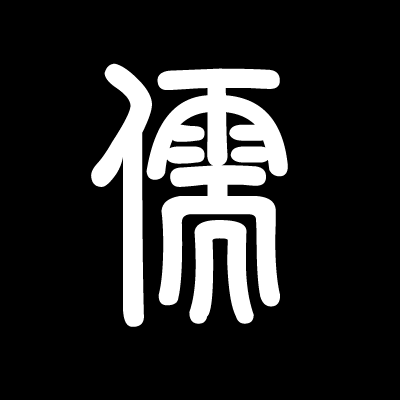
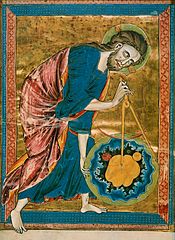
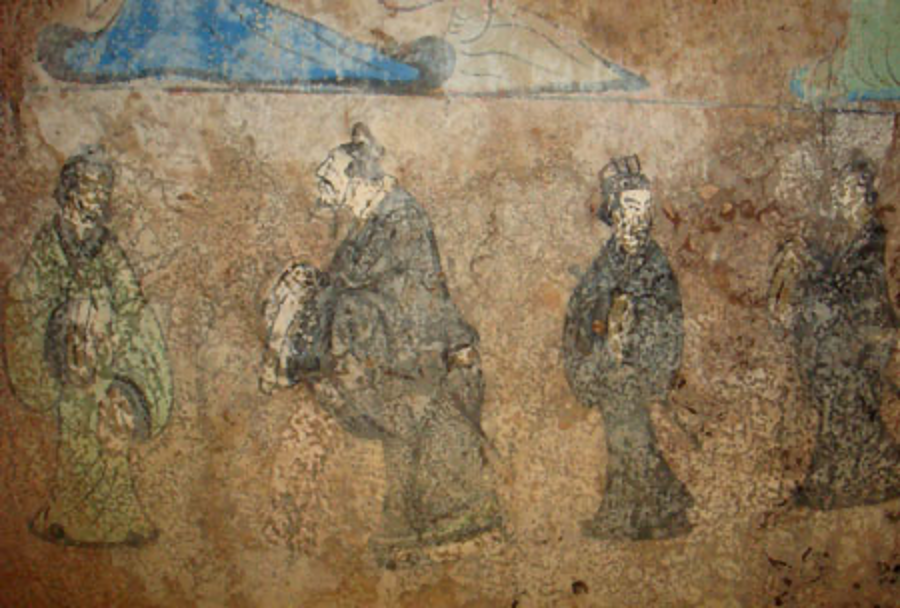
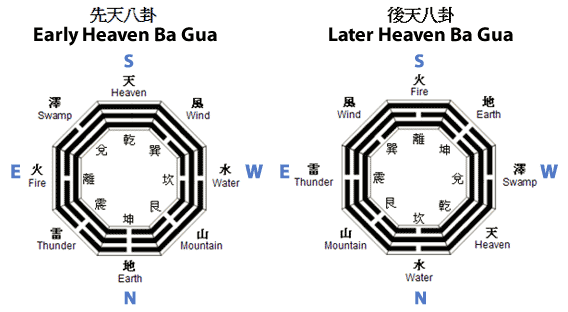
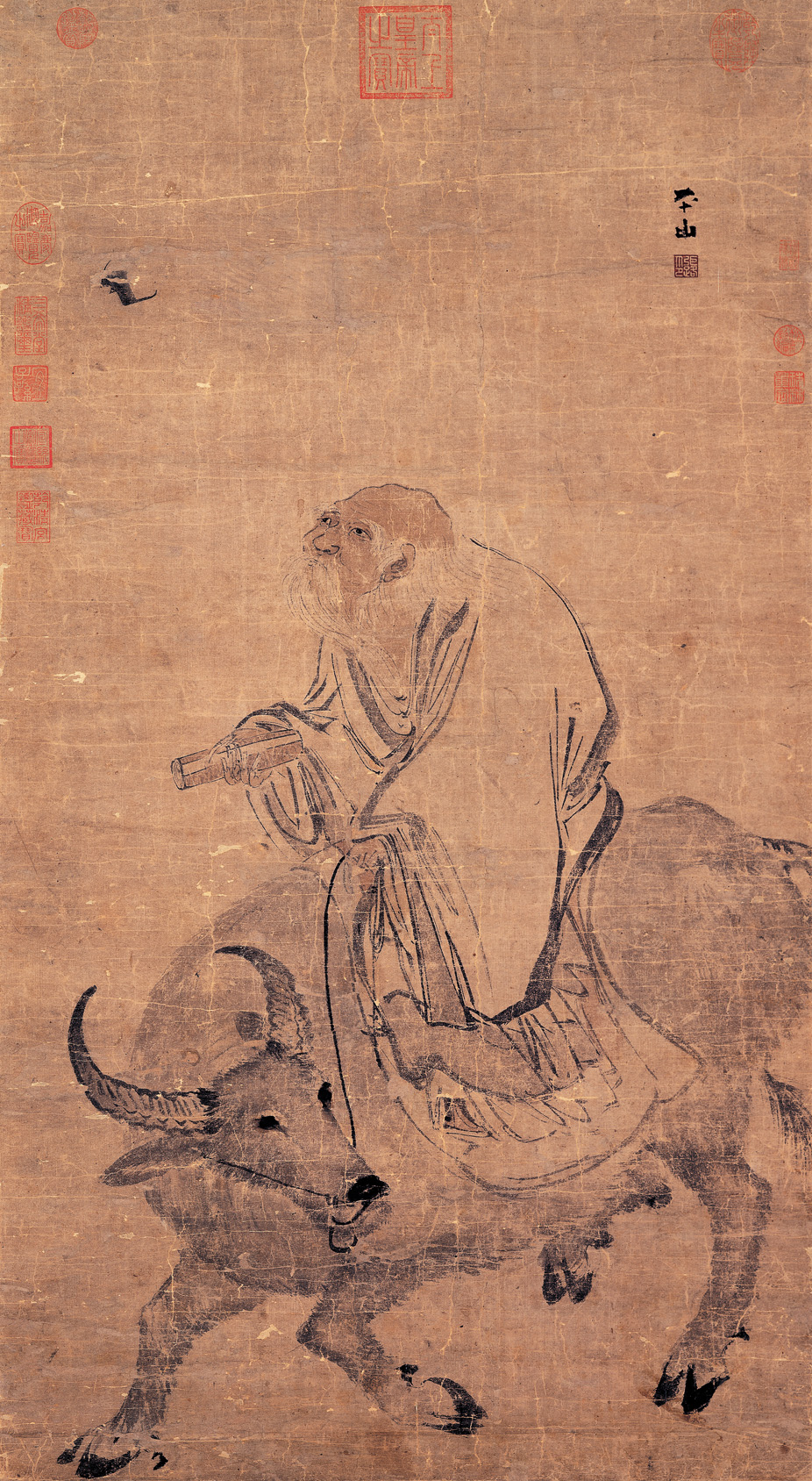
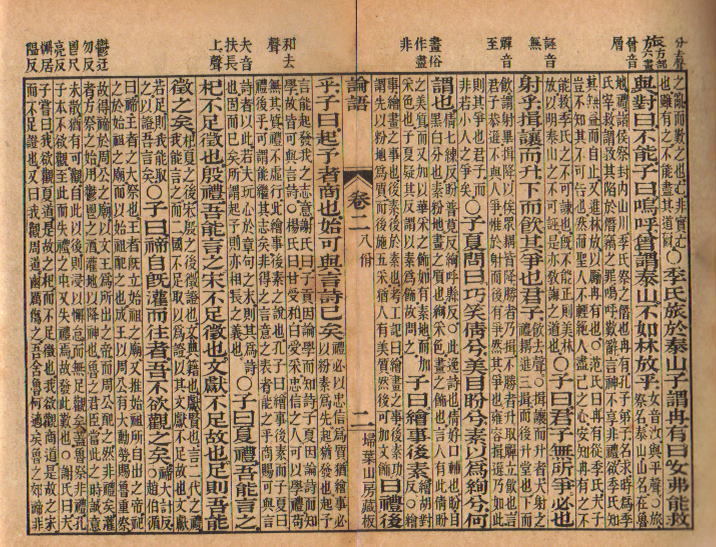
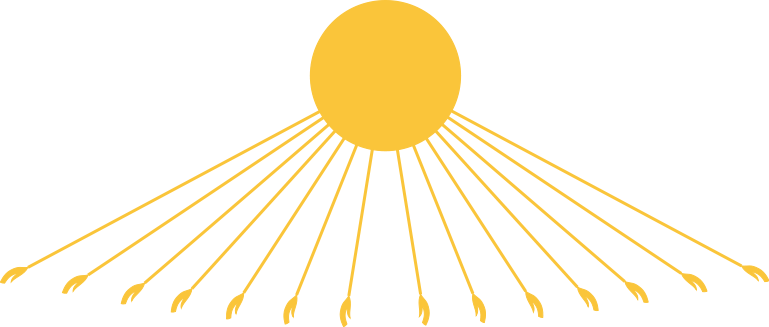
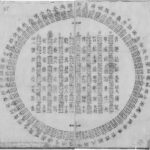
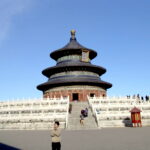
Leave a Reply
Want to join the discussion?Feel free to contribute!